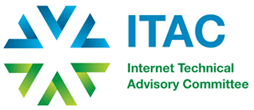Statement by Jordan Carter, Chief Executive, InternetNZ
Good morning/afternoon
Thank you Chair. Delegation members, fellow participants.
I would like to thank the Chair and the OECD Secretariat for organising this special High Level Session.
Let me start by expressing ITAC’s appreciation for the opportunity to participate in this Committee’s work – multistakeholderism at work…
…and today, to share our perspective on these important Internet Governance issues on the third anniversary of the OECD Principles for Internet Policymaking.
The Internet technical community, along with other stakeholders, has actively participated in a busy Internet governance agenda so far this year:
- In April NETmundial in Brazil showed a practical application of the principle of multistakeholder cooperation and consensus building.
The technical community, users, governments, business, and human rights advocates stood shoulder to shoulder, talking with each other, listening to each other, and working in the spirit of cooperation. This consensus-building model works.
- Just last week, the ITU hosted the WSIS+10 High Level Event, one of the key pieces of the overall Review of the WSIS in 2015. After months of multistakeholder negotiations, an outcome document was agreed to. It reviews 10 years of WSIS implementation and provides a Vision for WSIS Beyond 2015.
The document sends a strong signal for the Review process at the UN General Assembly to open-up to non-governmental stakeholders, which is currently not the case. We hope all governments present here today will publicly and firmly support an event, and a preparatory process, that is multistakeholder in nature.
- The Internet Governance Forum (IGF), to be held in Istanbul in September this year, is evolving its bottom up processes to produce more tangible outcomes, and to widen its dialogue with policy-makers while keeping intact the inclusive non-negotiating nature of the Forum which has proved so valuable.
- The ITU Plenipotentiary (PP-14) in October this year is likely to address governance of the Internet; again it is important that recognition is given to all the various bodies and associations (as well of course the ITU) that are working on such issues.
As we look towards the 2016 OECD Ministerial and beyond, the critical question for the next decade will not be whether or if, but how diverse stakeholders can work together for the common vision for the post-2015 era.
All multistakeholder approaches – whatever the region, whatever the institution – should be linked by common principles of openness, inclusiveness, and transparency. With firmly established multistakeholder frameworks, the next natural step is to agree on common values, principles and priorities.
As we commence the review of the 2011 principles, there are several priority areas from a technical community perspective.
IPv6: The full deployment of IPv6 is a fundamental and essential step to ensure that people and network-connected devices will be able to communicate on a global network.
Security. We need to work towards security that is focused on users and empowers them to make safe transactions online, and to feel confident in using the network. This security should be reinforced by an Internet that is resilient and robust.
Good multistakeholder governance. We need to foster a flexible and inclusive governance system that gives a voice to all stakeholders and reflects the decentralized architecture of the Internet.
These issues are not a matter of technology for the sake of technology: the issues we raise are best seen as technical foundations to empower users, to empower entrepreneurs and innovation, and ultimately to drive economic and social development.
Another important debate that took on new energy this year is that regarding IANA stewardship.
We are at an historic crossroads with the opportunity to make a transition from formal United States (NTIA) involvement to a truly global, multi-stakeholder governance arrangement for some of the key, global administrative functions of the Internet.
Developing a transition plan – a process ICANN is convening as requested by the U.S. – will require goodwill and hard thinking. The whole Internet community needs to work together to make sure that the transition protects the Internet’s security & stability, and provides acceptable levels of accountability and transparency.
So – how do we ensure that tackling these issues results in tangible economic and social growth?
We strongly believe that fostering an Open Internet is the way to go. The Internet is a network based on Open Standards that allow networks from across the globe to speak the same language and communicate.
For the technical community, an Open Internet is a space where innovation thrives, new services emerge, and disruptive ideas can proliferate.
An Open Internet is so much more than a purely technical notion:
- It means the ability to make your voice heard in decisions that may affect you; to shape the Internet your want – this is the key strength of the multistakeholder model.
- An Open Internet also enables people to innovate without the need to ask someone for permission to do so – that is what we call “permissionless innovation”.
- Finally, let’s not forget that by allowing people from Kigali to Tokyo to communicate seamlessly, the Open Internet supports the ideals of the Universal Declaration of Human Rights.
We strongly support the direction the Committee is starting to set out for the 2016 OECD Ministerial meeting. We urge that it further explore the notion of openness, in its technical, economic and social underpinnings.
Chair, delegates: thank you for your attention.
